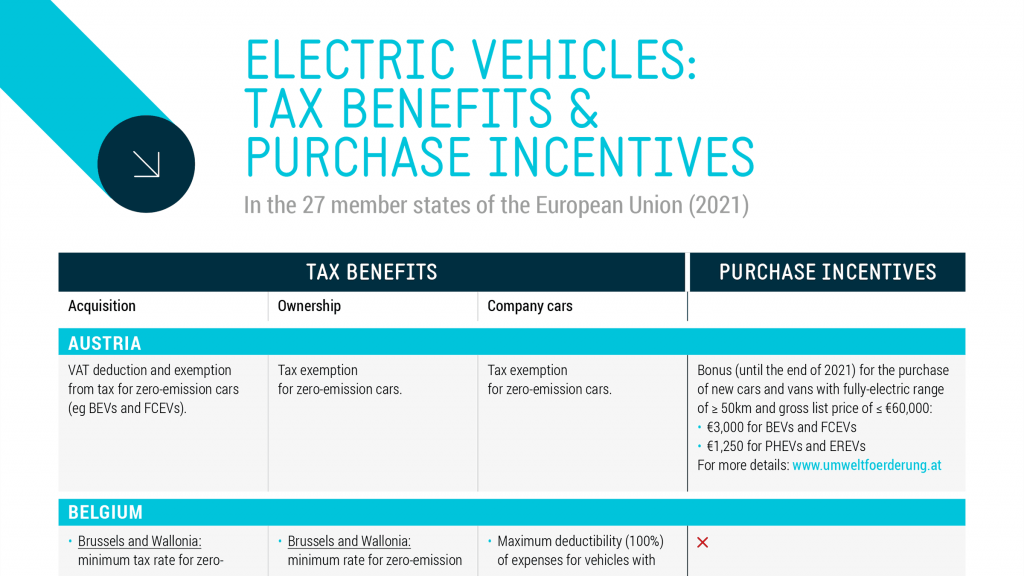
New York City has made a commitment to become the nation's leader in the EV market. NYC DOT is working together with partners in order to expand public EV charge. Its ambitious plan calls to add 1,000 curbside charging stations before 2025, increasing the number of charging points to 10,000. It will also continue installing DC fast chargers. These chargers will be installed at city-owned parking lots and highway exits.
These fast charging stations provide faster charging than traditional AC stations. They come with CHAdeMO connectors so that most EVs can be charged. A DC fast charger can typically charge 80% of a battery in just 20 minutes. It will take longer for fully charged all-electric vehicles to recharge.
NYC DOT works with private partners to increase public EV charging. It plans to invest $250 million in new fast charging stations by 2025. It is also planning to add more DC fast-charging stations to municipal parking lots.

The Electrifying New York strategy outlines eight initiatives to help the city transition to electric mobility. The plan includes a commitment for 120 Level 2 charging points to be installed at curbside locations throughout the five boroughs. By 2022, the city will have 140 fast charging stations in place.
The federal Infrastructure Investment and Jobs Act includes $7.5 billion to support the charging network. New York also commits to investing up to 20% of its municipal parking areas with Level-2 charging stations by 2025. The state will have an important role but must partner with the city as well as federal governments.
NYC DOT is constructing a network DC fast chargers throughout the city. They will be placed at every 50 miles. This will reduce range anxiety, and make it easy to charge on the move. These stations will offer a similar charging experience to gas stations.
FordPass Charging Network will soon be expanded to include more public charge points. It provides an interactive map showing charge points within their local area. Its website will keep users informed of any new updates. The station information can be accessed by touching a card or via a smartphone application. The stations are listed by distance, type, operator, and price. They are also rated on speed and price. The results may vary depending on the battery state and peak charging times.

The Electrifying New York program, which aims to reduce the carbon footprint in New York's transportation sector, is one of the largest in the country. It has been developed by a collaboration between the NYC Department of Transportation (DOT), Con Edison, NYPA, EVgo, and ABB. It is designed to offer New Yorkers an efficient and safe way to drive electric vehicles. As part a demonstration project the DOT plans on installing 120 Level 2 Chargers over four years.
FAQ
What qualifications are necessary to become a mechanic
You will need to pass several exams in order to become a mechanic. These include:
-
A test of general knowledge
-
A practical exam
-
An apprenticeship test
These tests are designed to ensure that you understand the basic concepts of mechanical engineering and physics before you start working as a mechanic.
Once you pass these tests you can become a mechanic. You'll still need an apprenticeship. This will involve training in the trade.
To be able to repair vehicles, you'll need classes or workshops. It will be necessary to work alongside experienced mechanics.
For mechanic success, you'll need to be focused and meticulous. You'll need to pay close attention to every aspect of vehicle repairs.
To become a good mechanic, you need patience and persistence. If you don't like to follow instructions, then this may not be the right career path for you.
You could make a great career out of your love for cars and the work that goes into fixing them.
How can I prepare myself for a mechanic apprenticeship
It is important that you understand the ramifications of your actions. You should be familiar with the mechanics of cars, and how they work. This will help you to plan your first day in the garage.
Also, you need to know how fix simple problems, such as tires and lights that aren't working.
This should help you learn how to diagnose issues and repair them yourself.
You'll also need to know how different parts fit together to put them back together again.
And finally, you must know how to use tools safely and efficiently.
All these things will help you to become a competent mechanic.
Is it hard to get work as an auto mechanic?
Yes, it is possible. Many garages post their vacancies online. Many people apply simply because they think it might make them feel good. To get your foot in front of the door, try applying for a few positions to see if any accept student applications. Another option is to ask family members and friends if anyone works in this industry. They may be happy to recommend someone.
Is it important which college I go?
No, not really. There's no difference between colleges regarding getting into the automotive industry. But, there are better programs at some schools than others. Look elsewhere if you want something more niche.
How long is an automotive mechanic apprenticeship
The apprenticeship to become an automotive mechanic takes about three years. The apprenticeship includes two years studying at school and two more as an apprentice. The first year is spent learning all aspects of the trade, including theory, practical skills, and safety procedures. During this time, you'll also learn how to use tools safely and efficiently. After completing the first year, you'll then spend another year on-the-job training where you'll gain experience in different areas of the trade. These periods will also give you the chance to take formal courses.
The final year of this program is spent in obtaining qualifications and becoming certified in your field. These include NVQs, which are obtained after passing industry-specific exams. In addition, there are HNCs (Higher National Certificates) that cover general subjects such as management, business administration, and customer service. City & Guilds certificates offer qualifications in certain trades.
Is being a mechanic apprentice hard?
It's not easy, but you learn fast, and there are many opportunities for advancement.
You must have patience and perseverance. Also, you must know how to fix trucks, cars, and motorcycles.
There is a lot of pressure from customers and family members who want you to succeed. But you should never feel pressured into making decisions you aren't comfortable with.
If you like fixing cars, this could be a great career option. This job allows you to make a decent wage and build up your company.
However, you might prefer to go down another route. This is where you might be interested in becoming a technician.
This means that you can use your technical knowledge to help other workers. You could help technicians troubleshoot problems or teach them new techniques.
You can also become a service advisor. When customers bring their cars into a garage, they will receive advice and assistance.
The decision you make will depend on what you are looking for. There are many choices available and you can choose what suits you best.
Is automotive mechanic a promising career?
For those who are passionate about excellence, automotive is a rewarding industry. You can only succeed in this field if you work hard and learn from others.
Because you will be spending most of your time communicating with customers and employees, you will need excellent communication skills. You will need to be able and willing travel for work, making it more difficult to commute.
If you're interested in pursuing a career in automotive, consider taking classes at community colleges and universities. Many schools offer programs specifically designed for students interested in auto repair, sales, or customer service.
If you decide to pursue a degree, you should study mechanical engineering. You can earn a bachelor's in as little four years.
Many companies will hire students straight out of college. Therefore, it is a good idea to look for employment while still pursuing part-time studies.
After you've finished your education, it's likely that you'll need to go through some training before you can be hired as an auto technician.
This means that you will need to pass tests such as the Automotive Excellence (ASE) certification exam. This exam covers topics such as engine maintenance, brakes and suspension.
Once you have passed the ASE Test, you are eligible to apply for a National Institute for Automotive Service Excellence License.
Private individuals can have their vehicles repaired with a license. In exchange, you'll receive compensation based on the number of services performed.
It's important to note that not all states require licensing. However, licensing is required for anyone who plans to work outside the home state.
Some states do not issue licenses until they have received a certain amount or training. This may be the case for you.
Statistics
- 52% of Mechanics in the United States think their salaries are enough for the cost of living in their area. (indeed.com)
- Apprentice mechanics earn significantly less hourly than mechanics who have completed training, with a median wage of approximately $14.50 an hour, according to PayScale. (jobhero.com)
- The U.S. Bureau of Labor Statistics (BLS) reports that the job outlook for automotive service technicians and mechanics is expected to decline by 4% from 2019 to 2029. (indeed.com)
External Links
How To
How to Become an Auto Technician
A technician who works on vehicles is an automotive technician. He/she works in car dealerships as well as auto shops, garages, and service centers. He/she works with customers to repair their cars and trucks, ATVs or snowmobiles. An automotive technician must have the ability to quickly diagnose and fix problems.
A person who wants to work as an automotive technician should first obtain an associate degree from a vocational school. After completing this program, he/she will need to pass the National Institute for Automotive Service Excellence's (ASE) certification exam. ASE stands as American Society of Mechanical Engineers. The ASE certification test consists of two sections. One section tests knowledge of mechanical components, while the other section tests skills in practical areas. You must attend one of the authorized testing sites to take the test. These testing sites can be found online and through your local dealer.
Before becoming an automotive technician, a candidate must pass the test. This process varies depending on where the applicant lives. For example, some states require candidates to attend a training course, while others allow them to study independently. Some states issue licenses to technicians as soon as they get their license. Others wait until they have worked at least six months as an automotive technician.
Apply to your local dealership to become an automotive technician. Once hired, most new employees start out working as apprentices. Apprenticeships last for three years. Students learn basic repair skills such as changing oil and adjusting brakes, changing tires, cleaning spark plugs and inspecting engine compartments. Some students learn how to do advanced repairs, such as installing air filters, replacing shocks, repairing engines, and replacing transmission fluids. Schools offer classes during business hours. Some schools offer evening classes, however.
Once a student is done with his/her apprenticeship he/she can become a master journeyman. Journeymen typically spend four to five years learning how to install major systems, such as transmissions, differentials, steering gear, suspensions, and drive shafts. You will also learn how to repair complicated electrical components, as well as how to remanufacture engines and rebuild transmissions. Many employers prefer hiring journeymen because they know the job well and understand what the customer expects.
If a candidate successfully passes the required exams and receives a license, he/she might want to consider starting his/her own shop. According to the Bureau of Labor Statistics, nearly 1.7 million automotive mechanic jobs were available in 2010. The Bureau of Labor Statistics predicted that this number would rise by 18% from 2009 to 2020. The candidate should expect to invest thousands of money in equipment and supplies if he/she decides to start his/her shop.
Many factors affect the automotive technician's salary, including location, education, experience, and employer type. On average, a jobless person could expect to earn $20,000 annually. An individual with a high school diploma can earn about $21,000 per annum. An associate's degree earns approximately $24,000 annually. Technicians with a bachelor’s degree made about $27,000 annually. Masters' degree holders earn around $32,000 per annum. Salary increases are common, so a professional who earns less than $30,000 now could reasonably expect to earn $40,000 or more in just a few years.